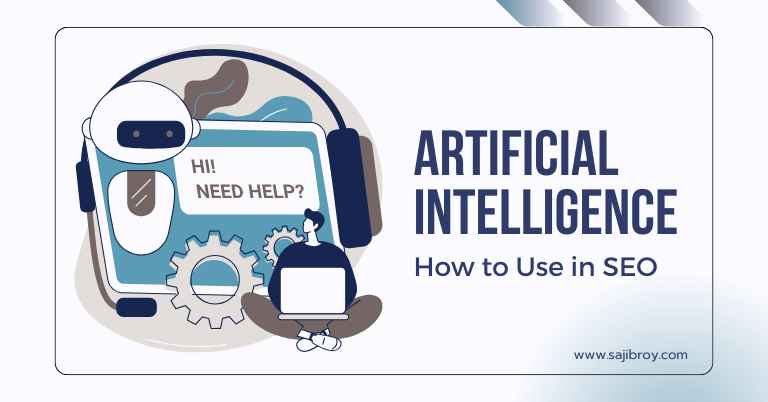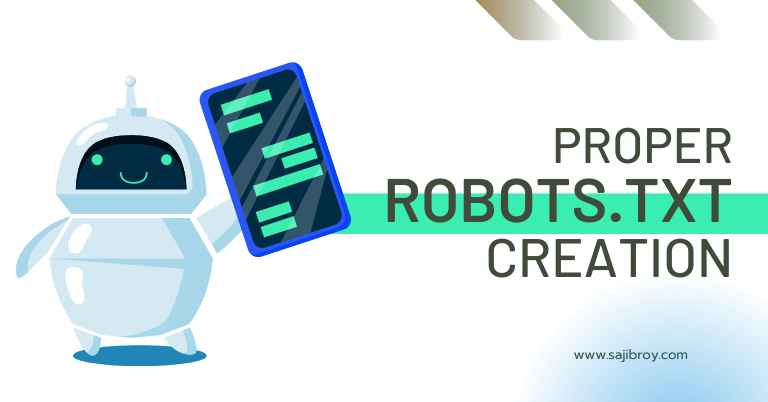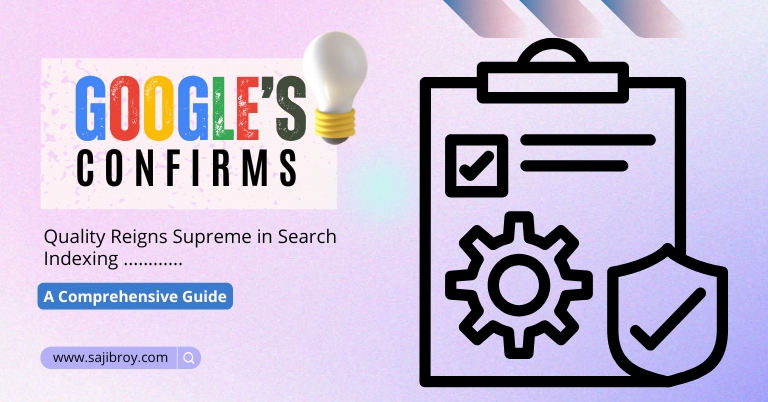Artificial intelligence is revolutionizing the world through its transformative capabilities. From automating processes to enabling personalized experiences, AI is reshaping industries and everyday life.
With its ability to analyze vast amounts of data, learn from patterns, and make data-driven decisions, AI is driving innovation, efficiency, and creativity across various sectors. Whether it’s healthcare, finance, transportation, or entertainment, AI is profoundly impacting how we work, communicate, and interact.
Its potential extends to improving customer experiences, enhancing decision-making, enabling predictive analysis, and even addressing complex global challenges. As AI continues to advance, its influence will only grow, shaping the future and transforming the possibilities for a wide range of domains.
Let's See the Topic Overview
Introduction To AI in The Modern World
Definition And Explanation Of AI
Artificial intelligence (AI) has become one of the most groundbreaking technologies in the modern world. This branch of computer science focuses on creating intelligent machines that possess the ability to think, reason, and learn like humans. AI allows machines to analyze data, make decisions, and perform tasks without explicit human instructions.
Here are a few key points to understand the definition and explanation of AI:
- AI involves the development of intelligent systems that can simulate human intelligence and behavior.
- It utilizes various techniques such as machine learning, natural language processing, computer vision, and robotics.
- Machine learning algorithms enable AI systems to learn from data, improve performance, and adapt to changing situations.
- Natural language processing allows AI systems to process and understand human language, enabling tasks such as speech recognition and language translation.
- Computer vision empowers machines to interpret and analyze visual information, making it possible for them to recognize objects, faces, and patterns.
- Robotics combines AI with engineering to create complex autonomous machines that can interact with their environment.
The Widespread Applications Of AI in Various Industries
AI has found its way into numerous industries, revolutionizing the way we live, work, and interact. Its applications span across various sectors, including:
- Healthcare: AI is being utilized to improve diagnostics, develop personalized treatments, and assist in drug discovery.
- Finance: AI algorithms are used to analyze and predict financial market trends, automate trading, and detect fraudulent activities.
- Retail: AI-powered chatbots and recommendation systems enhance customer service and provide personalized shopping experiences.
- Transportation: AI enables the development of autonomous vehicles, improving road safety and efficiency.
- Manufacturing: AI is employed to optimize production processes, streamline supply chains, and enhance quality control.
- Education: AI-based virtual tutors and adaptive learning platforms help personalize education and improve student outcomes.
- Entertainment: AI is used to create realistic video game characters, provide content recommendations, and enhance visual effects in movies.
- Cybersecurity: AI algorithms detect and prevent cyber threats by analyzing patterns and identifying anomalies in network traffic.
The Opportunities And Challenges Of AI Adoption
The adoption of AI presents various opportunities and challenges for businesses and society as a whole. Here are some key points to consider:
Opportunities:
- Increased productivity and efficiency through automation of repetitive and mundane tasks.
- Enhanced decision-making capabilities, with AI systems being able to process vast amounts of data and provide valuable insights.
- Improved customer experiences through personalized recommendations, intelligent virtual assistants, and chatbots.
- Advancements in medical research, leading to better treatments and improved healthcare outcomes.
- Job creation in the field of AI development and implementation.
Challenges:
- Ethical considerations surrounding AI, including issues of bias, privacy, and security.
- The potential for job displacement as AI automation replaces certain roles.
- Ensuring transparency and accountability in AI decision-making processes.
- The need for continuous upskilling and reskilling of the workforce to adapt to the changing job market.
- Striking a balance between human and machine collaboration to harness the full potential of AI without undermining human capabilities.
AI is transforming the world in unprecedented ways, enabling advancements across various industries and domains. While it presents immense opportunities, careful consideration of its ethical implications and proactive measures to mitigate challenges are essential for a responsible and beneficial integration of AI into our society.
AI Impact On Business Operations
Artificial intelligence (AI) has revolutionized the way we live and work, transforming various industries across the globe. In the realm of business operations, AI has made a profound impact, enabling organizations to streamline processes, enhance efficiency, and deliver exceptional customer experiences.
Let’s delve deeper into the key ways in which AI is shaping the world of business.
Automation Of Repetitive Tasks With AI
- AI has proven to be a game-changer when it comes to automating repetitive tasks that consume valuable time and resources.
- Tasks such as data entry, invoice processing, and inventory management can be efficiently handled by AI-powered systems.
- By delegating these mundane tasks to AI, businesses can free up their employees to focus on more strategic and value-added activities.
Enhancing Efficiency And Productivity Through AI-Powered Systems
- AI-powered systems are capable of analyzing vast amounts of data in real-time, enabling businesses to make data-driven decisions swiftly.
- With AI, businesses can leverage predictive analytics to identify trends, forecast demand, and optimize operations accordingly.
- Through machine learning algorithms, AI systems continuously learn and improve, enhancing efficiency and productivity over time.
Transforming Customer Experience With AI-Driven Solutions
- AI-driven solutions have revolutionized the way businesses interact with their customers, resulting in highly personalized experiences.
- Chatbots and virtual assistants are prime examples of AI applications that provide instant and accurate responses to customer queries, enhancing overall satisfaction.
- AI also enables businesses to analyze customer data, gain insights into preferences and behaviors, and tailor products and services accordingly.
AI has significantly impacted business operations, from automating repetitive tasks to improving efficiency and transforming customer experiences. As AI continues to evolve, businesses must embrace this technology to stay competitive in today’s rapidly changing world. By leveraging the power of AI, organizations can optimize operations, enhance productivity, and deliver exceptional value to their customers.
AI Revolution In Healthcare
Artificial intelligence (AI) has become a driving force in transforming various industries, and healthcare is no exception. The AI revolution in healthcare is revolutionizing the way doctors diagnose and treat medical conditions, improving patient care and outcomes, but it also raises important ethical considerations and concerns.
AI Applications In Medical Diagnosis And Treatment
- AI is being used to analyze medical imaging data such as x-rays, ct scans, and mris, enabling more accurate and faster diagnoses.
- Machine learning algorithms can detect patterns and abnormalities in medical images that may be missed by human eyes, allowing for early detection of diseases like cancer.
- AI-powered diagnostic tools are assisting healthcare professionals in interpreting lab results, accurately diagnosing conditions, and recommending appropriate treatment plans.
- Natural language processing (nlp) algorithms can analyze electronic health records, extracting valuable insights and assisting doctors in making personalized treatment decisions.
Improving Patient Care And Outcomes Through AI Technologies
- AI-driven chatbots and virtual assistants are transforming how patients access healthcare information, providing immediate answers to frequently asked questions and relieving the burden on healthcare providers.
- Predictive analytics algorithms leverage patient data to identify those at high risk of developing certain illnesses, enabling proactive intervention and preventive measures.
- AI-powered wearable devices and sensors can continuously monitor vital signs and track patient data, providing real-time alerts to healthcare providers, optimizing treatment plans, and improving patient care.
- Virtual reality and augmented reality applications are being used for medical training and surgery simulations, ensuring doctors are better prepared and enhancing patient safety.
Ethical Considerations And Concerns In AI-Powered Healthcare
- Patient privacy and data security are critical concerns when using AI in healthcare. Safeguarding sensitive medical information is essential to ensure patient trust and compliance with data protection regulations.
- The potential for biases in AI algorithms needs to be addressed. Training data bias can lead to unequal healthcare outcomes for different groups, emphasizing the need for diverse and representative training datasets.
- The responsibility of decision-making in AI-powered systems is an ethical concern. Ultimate accountability should still lie with healthcare professionals, with AI systems serving as complementary tools rather than replacing human judgment.
- Transparency and explainability of AI algorithms are crucial to gain trust from both healthcare providers and patients. It is essential to understand how AI arrives at its conclusions to ensure decisions are justified and reliable.
AI is revolutionizing healthcare by enhancing medical diagnosis and treatment, improving patient care and outcomes, but it is crucial to address ethical considerations and concerns to ensure the responsible and effective implementation of AI-powered healthcare solutions. As AI continues to evolve, it holds tremendous potential to revolutionize healthcare delivery and contribute to a healthier world.
AI Advancements In Education
Artificial intelligence (AI) has made significant contributions to transforming various industries, and education is no exception. With the rapid advancements in AI technology, it has become increasingly integrated into educational systems and has the potential to revolutionize how knowledge is imparted and acquired.
Let’s explore some of the key advancements that AI has brought to the field of education.
Personalized Learning Experiences With AI Algorithms
- AI algorithms play a crucial role in creating personalized learning experiences for students. By analyzing vast amounts of data, these algorithms can assess a student’s strengths, weaknesses, and learning style to tailor the content, pace, and assessment methods accordingly.
- With AI-powered personalized learning, students can receive individualized attention and support, allowing them to progress at their own pace. This approach ensures that students grasp concepts thoroughly before moving on, promoting a deeper understanding of the subject matter.
- AI algorithms also enable educators to identify gaps in their teaching methodologies and adjust their strategies accordingly. By analyzing student performance data, teachers can identify areas that require improvement, allowing them to modify their approach and make learning more effective.
AI-Powered Educational Tools And Platforms
- The integration of AI in educational tools and platforms has significantly enhanced the learning experience. AI chatbots, for instance, can provide instant and personalized assistance to students, answering their questions and guiding them through the learning process.
- AI-driven virtual tutors can also provide personalized feedback and suggestions, helping students improve their performance. By analyzing student responses and patterns, virtual tutors can adapt to each student’s specific needs, supporting them in their academic journey.
- AI-powered educational platforms offer immersive and interactive learning experiences. Through virtual reality (vr) and augmented reality (AR) technologies, students can explore complex concepts in a simulated environment, making learning more engaging and memorable.
The Role Of AI In Shaping The Future Of Education
- AI has the potential to revolutionize the future of education by addressing some of the challenges faced by traditional teaching methods. It can bridge gaps in access to quality education by providing remote learning opportunities to students worldwide, eliminating geographical barriers.
- AI can also assist educators in streamlining administrative tasks, such as grading and curriculum development, allowing them to focus more on personalized teaching and student support.
- By leveraging AI technology, educators and institutions can better analyze and make use of vast amounts of educational data. This data-driven approach can lead to insights and innovations that can improve learning outcomes and overall educational practices.
- However, it is crucial to ensure that ethical considerations and privacy concerns are carefully addressed when implementing AI in education. Striking a balance between human involvement and AI integration will be critical to achieving the full potential of AI in the educational landscape.
The advancements in AI showcased in the field of education hold great promise for the future. By leveraging personalized learning experiences, AI-powered tools, and platforms, and shaping the future of education, AI has the potential to make learning more accessible, engaging, and effective.
As educators continue to adapt and embrace these advancements, students around the world can benefit from a truly transformative educational experience.
AI In Transportation And Smart Cities
Artificial intelligence (AI) has rapidly evolved and is revolutionizing various industries, including transportation and the development of smart cities. With the power of AI, transportation systems and urban environments are being transformed, leading to more efficient and sustainable living. In this blog post, we will explore the key ways AI is reshaping transportation and smart cities.
Autonomous Vehicles And Their Impact On Transportation
- Autonomous vehicles are vehicles that can navigate and operate without human intervention. They rely on AI technologies, such as machine learning and computer vision, to analyze their surroundings and make decisions in real-time.
- This technology has the potential to significantly impact transportation by enhancing safety, reducing accidents caused by human error, and improving traffic flow.
- Autonomous vehicles can optimize routes, minimize congestion, and maximize fuel efficiency, leading to reduced travel time and lower carbon emissions.
- With AI-enabled autonomous vehicles, people can have a more convenient and reliable mode of transportation, making daily commutes, road trips, and public transportation more efficient and enjoyable.
Ai-Enabled Traffic Management Systems
- AI plays a crucial role in transforming traditional traffic management systems into smart and efficient networks.
- Traffic management systems powered by AI can collect real-time data from various sources, including traffic cameras, sensors, and mobile devices, to monitor and analyze traffic conditions.
- By analyzing this data, AI algorithms can predict traffic patterns, identify congestion hotspots, and dynamically adjust traffic signal timings to alleviate congestion and improve traffic flow.
- Ai-enabled traffic management systems can also optimize the routing of public transportation, such as buses and trains, reducing travel time and providing a more efficient and reliable transit experience for commuters.
- With AI in traffic management, cities can achieve better traffic control, reduce congestion, improve air quality, and enhance overall transportation efficiency.
Building Sustainable And Efficient Smart Cities With AI
- Smart cities leverage AI technologies to create more sustainable and efficient urban environments.
- AI can analyze vast amounts of data collected from various sources, including sensors, iot devices, and social media, to gain insights into energy usage, waste management, water consumption, and other critical aspects of urban living.
- By analyzing this data, AI can help optimize resource allocation, identify areas for improvement, and make predictions to better manage and sustain city infrastructures.
- Ai-powered systems can optimize energy usage, reducing waste and promoting energy savings across a city. For example, streetlights can be programmed to dim when no one is around, saving electricity.
- Ai can also enable intelligent waste management by efficiently routing waste collection vehicles based on real-time data, reducing fuel consumption and minimizing the environmental impact.
- By implementing AI solutions in smart cities, urban environments can become more sustainable, livable, and environmentally friendly.
In the fast-paced world we live in, AI is transforming transportation and smart cities, making them more efficient, sustainable, and user-friendly. As technology continues to advance, we can expect even more innovations and improvements in how we move around and live in these urban spaces.
With AI as a driving force, the future of transportation and smart cities looks promising, offering enhanced safety, reduced congestion, and a more sustainable way of living.
AI And The Future Of Work
Artificial intelligence (AI) has rapidly become a game-changer in various industries, transforming the way we work and pushing the boundaries of technological advancement. As AI continues to evolve, it’s essential to explore its impact on the future of work. From the changing job landscape to upskilling the workforce and the potential benefits and challenges of AI integration, let’s delve into the exciting world of AI and its influence on the way we work.
The Changing Job Landscape Due To AI Automation
AI automation has been a significant catalyst in reshaping the job landscape, impacting various industries and job roles. Here are some key points to consider:
- Job displacement: As AI continues to automate tasks that were previously performed by humans, some jobs may become obsolete or experience significant changes.
- New job opportunities: While AI automation may eliminate certain roles, it also opens up new avenues for employment. Occupations that require creativity, complex problem-solving, and emotional intelligence will likely thrive.
- Complementary roles: Rather than solely replacing humans, AI is often integrated into the workforce to enhance productivity and efficiency. This integration creates new roles that work collaboratively with AI technologies.
Upskilling And Reskilling The Workforce For AI-Powered Jobs
To adapt to the evolving job landscape, upskilling and reskilling the workforce is crucial. Here are the key considerations:
- Continuous learning: With AI’s rapid advancement, it’s essential for workers to adopt a mindset of continuous learning. Upskilling enables individuals to acquire new skills and knowledge to thrive in AI-powered jobs.
- Emphasis on soft skills: While technical skills are important, soft skills such as critical thinking, adaptability, and emotional intelligence are becoming increasingly valuable. These skills are difficult to automate and enable individuals to work alongside AI effectively.
- Collaboration between industries and educational institutions: Close collaboration between industries and educational institutions is essential to bridge the skill gap. By identifying the skills in demand and tailoring educational programs accordingly, it becomes possible to prepare individuals for AI-powered jobs.
The Potential Benefits And Challenges Of AI Integration In The Workplace
Integrating AI into the workplace offers numerous benefits, but it also presents unique challenges. Here’s what you need to know:
- Benefits of AI integration: AI integration provides increased efficiency, accuracy, and productivity. It streamlines complex tasks, reduces human error, and enables businesses to make data-driven decisions. Additionally,
It can free up human workers to focus on more high-value and strategic activities.
- Challenges to address: While AI integration has immense potential, it also brings challenges that require attention. These include ensuring data privacy and security, addressing ethical concerns, and managing potential job displacement. It is crucial to develop policies and regulations that protect workers and society as a whole.
As AI continues to advance, its influence on the future of work will only grow. By recognizing the changing job landscape, prioritizing upskilling and reskilling, and navigating the benefits and challenges of AI integration, we can embrace the opportunities that AI presents.
The key lies in striking a harmonious balance between human potential and the power of AI, ensuring a future of work that is intelligent, efficient, and inclusive.
AI Ethics And Governance
Artificial intelligence (AI) has rapidly infiltrated various aspects of our lives, transforming the way we live, work, and interact with technology. From virtual assistants to self-driving cars, AI has made significant advancements in recent years. However, as AI becomes more prevalent, it is crucial to address the ethical considerations and establish proper governance to ensure its responsible and fair use.
In this section, we will explore key aspects of AI ethics and governance.
Ethical Considerations In AI Development And Deployment
AI technology holds immense potential, but it also raises important ethical questions. Here are some key considerations:
- Privacy concerns: AI systems collect and analyze vast amounts of data, posing potential threats to individual privacy. Striking the right balance between data utilization and protecting privacy is a critical ethical challenge.
- Algorithmic bias: AI algorithms learn from existing data, which may contain biases and prejudices. This can result in discriminatory outcomes, particularly in areas like hiring or judicial decisions. Ethical ai development involves minimizing algorithmic bias and ensuring fair outcomes.
- Accountability for AI decisions: AI systems can make autonomous decisions that impact individuals and societies. Establishing accountability for these decisions becomes paramount to ensure transparency, fairness, and ethical responsibility.
Ensuring Fairness And Transparency In AI Algorithms
To address concerns about algorithmic bias and fairness, it is essential to take specific measures during AI development and deployment:
- Diverse datasets: Ensuring that the datasets used to train AI algorithms are diverse and representative of the target population helps minimize biases. This approach facilitates fair outcomes and reduces the risk of reinforcing existing inequalities.
- Regular audits: Conducting periodic audits of AI algorithms and their outputs helps identify and rectify any potential biases or unintended consequences. Transparency regarding the auditing process is vital to build and maintain trust with users.
- Explainability: AI algorithms should be designed to provide explanations for their decisions. Interpretable models and clear explanations enable users to understand how and why a particular outcome was reached, promoting transparency and accountability.
Regulatory Frameworks And Guidelines For AI Ethics
Recognizing the importance of ethical AI, several regulatory frameworks and guidelines have emerged to govern its development and use. These initiatives aim to ensure responsible AI deployment. Some key examples include:
- General data protection regulation (gdpr): The gdpr, implemented in the european union, provides guidelines for the lawful and ethical collection, processing, and storage of personal data. It emphasizes user rights and aims to protect individuals’ privacy.
- Ethical principles and guidelines: Organizations such as the institute of electrical and electronics engineers (ieee) and the Partnership on AI have established principles and guidelines to promote ethical AI development. These frameworks encourage responsible practices and highlight the need for transparent decision-making processes.
- Government regulations: Governments worldwide are recognizing the need for AI regulations. For instance, the European commission has released a proposal for a regulatory framework on AI to ensure safety, accuracy, and respect for fundamental rights.
By addressing ethical considerations, ensuring fairness and transparency in AI algorithms, and implementing regulatory frameworks, we can harness the power of AI responsibly. This approach will help build trust among users and maximize the benefits ai offers to society.
Conclusion
Artificial intelligence (AI) has undeniably become a key driver of transformation in our world today. Its impact can be felt across numerous industries, from healthcare to finance, and transportation to entertainment. As AI continues to evolve, the potential it holds for further advancements and innovation is limitless.
With AI, processes that once required significant time and resources can now be automated, allowing for increased efficiency and productivity. From chatbots providing instant customer service to machine learning algorithms revolutionizing medical diagnoses, AI has the power to reshape the way we live and work.
Moreover, AI has the ability to analyze large volumes of data with incredible accuracy, providing valuable insights and predictive capabilities. This has the potential to revolutionize decision-making processes and drive business growth. By harnessing the power of AI, organizations can streamline operations, enhance customer experiences, and gain a competitive edge in an increasingly data-driven world.
Artificial intelligence is not just a buzzword, but a transformative force poised to revolutionize our society. By embracing ai technologies, we can unlock new opportunities for innovation, efficiency, and growth. As AI continues to advance, it holds the potential to solve complex problems, improve decision-making processes, and shape a sustainable and prosperous future for all.
So, let’s embrace the power of AI and embark on this exciting journey of transformation.



![6-Month Local SEO Plan [Download Your Complete Proposal Template]](https://www.sajibroy.com/wp-content/uploads/2025/01/6-Month-Local-SEO-Plan-Download-Your-Complete-Proposal-Template.jpg)








